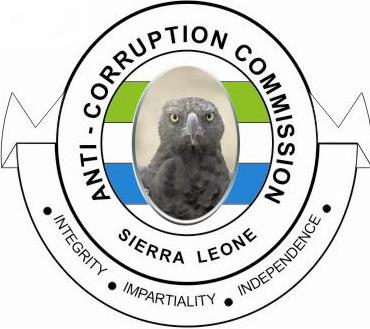The Regional Manager of the Anti-Corruption Commission (ACC) Kono Office has engaged and solicited the support of the Indigenous Livestock Rearers, Butchers and Traders Association in the fight against corruption in the District. This event took place at the Gbense Native Administration Hall on the 15th September, 2024.
Making her statement, Madam Hawanatu Omotayo Kamara explained the mandate of the Commission which is to prevent and suppress corruption in the country, and as the lead institution in fighting against the scourge, it can only succeed with the support of both formal and informal sectors. Highlighting the importance of livestock ranchers and butchers, the Regional Manager stated that livestock is an important component of the Government’s ‘Feed Salone’ project.
Mrs. Kamara furthered that several produce can come from livestock such as milk, cheese, meat, butter, manure for plants, etc. adding that, it can lead to economic benefit if managed properly. Sierra Leone needs to shift to mechanised livestock production rather than the traditional way. This, according to the Manager, will lead to quality production, which will in turn enhance economic benefits.
The Manager also informed the participants that Government encourages people who work with transparency and accountability and provide the enabling environment. She continued that the Ministry of Agriculture is a devolved sector in the council and provides oversight to the cattle ranchers. She urged the ranchers to be paying their licence fees to the required authorities and to discourage illegal ranch settlements.
The Manager further stated that the livestock value chain is wide and its ranges from the transfer of the cows to consumption. Each, she says, has its financial obligations in the form of taxes to be paid. She said meeting such obligations will help the Government in the form of income to do road projects and other developmental activities.
In her concluding statement, the Manager highlighted some of the gains of the Commission in the district, such as, but not limited to, the recovery of assets, indictments, recovery of project monies, etc. She added that the Commission cannot succeed in the fight against corruption without the support of all Sierra Leoneans. She encouraged them to act as whistleblowers and report any suspected acts of corruption in their communities to the Commission, admonishing them to resist, reject corruption and also cited the whistleblower policy for which the Commission will reward 10 percent to informants consequent upon a successful recovery.
While making his statement, the Public Relations Officer (PRO) of the Indigenous Livestock Rearers, Butchers and Traders Association Amadu Russia Jalloh thanked the ACC and other stakeholders for attending their meeting. He continued that they have put certain measures in place as a responsible Association to ensure licences are paid and on time and to discourage illegal ranches and petty theft.
The PRO also outlined the grievance mechanisms they have instituted between their host communities and farmers, stating that such mechanisms have fostered peaceful coexistence amongst them. He called on the Government to support them in improving their services as Kono District with over 400 ranches supply cows nationwide for consumption.
The Chairman of Kono District Council, Augustine Dukunor Sheku told members of the Association that there are lot of opportunities to benefit from the Government under the Feed Salone project. He said that the Government does not provide support to one persn and therefore encouraged them to come together to form cooperatives. “Forming a cooperative will attract Donor and Government attention for aid,” he affirmed.
An interactive question and answer session formed part of the engagement.
Public Education Unit, ACC Regional Office in Kono




